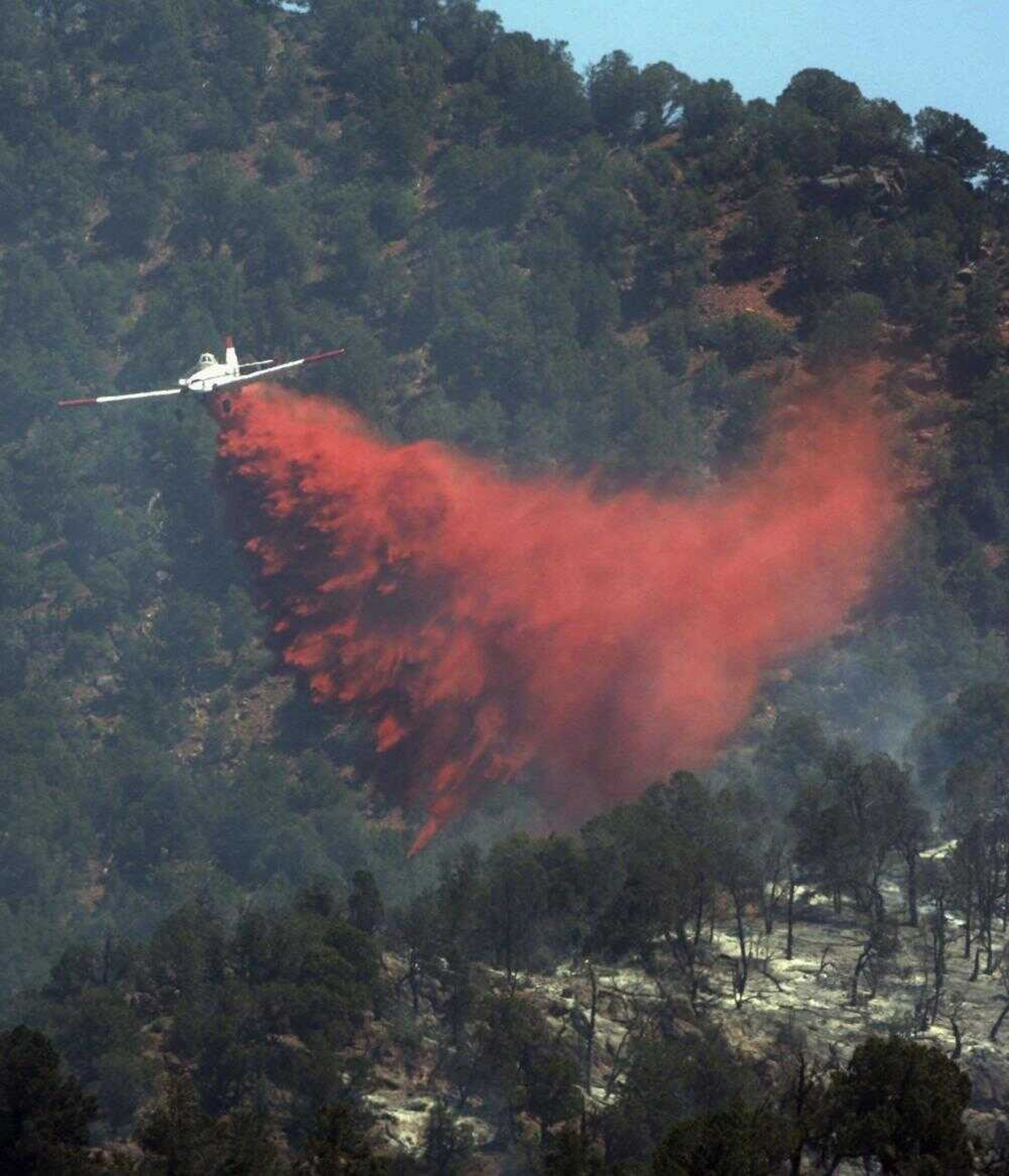Colorado wildfire forces evacuation of 30 homes, scorches 1,300 acres
DENVER -- Air tankers took to the sky Tuesday to help ground crews battling three wildfires that charred more than 1,300 acres in western Colorado and forced the evacuation of 30 homes west of Glenwood Springs. No injuries or property damage were reported...
DENVER -- Air tankers took to the sky Tuesday to help ground crews battling three wildfires that charred more than 1,300 acres in western Colorado and forced the evacuation of 30 homes west of Glenwood Springs.
No injuries or property damage were reported.
At least 120 firefighters, six aircraft and six fire engines were on the scene of the 350-acre blaze outside Glenwood Springs, about 160 miles west of Denver, where flames were within a half-mile of a cluster of houses north of town.
In addition to the 30 homes under evacuation orders, residents of 400 other homes had been advised to leave, Bureau of Land Management spokeswoman Mel Lloyd said. She did not know whether any had done so.
A shelter was opened in a school in neighboring New Castle.
Fire crews kept watch on the weather, concerned that wind could kick up late in the day and fan the flames, said Garfield County sheriff's spokeswoman Tanny McGinnis.
Containment of the blaze, one of several likely started by lightning Sunday, was listed at zero percent.
One fire, about 155 miles west of Denver near Parachute, had been held to just 4 acres but was a concern because it was just 200 yards from homes and natural gas wells.
A fire near the town of Cameo, 180 miles west of Denver, had doubled since Monday to more than 1,000 acres, Lloyd said. However, fire crews gave higher priority to the fire near Glenwood Springs because it threatened homes, she said. It was just 5 percent contained.
The region is dry and temperatures have been in the upper 80s.
"As far as fire danger right now, we're still expecting an average season, but the western part of the state is very dry," said Larry Helmerick of the interagency Rocky Mountain Coordination Center.
Connect with the Southeast Missourian Newsroom:
For corrections to this story or other insights for the editor, click here. To submit a letter to the editor, click here. To learn about the Southeast Missourian’s AI Policy, click here.










